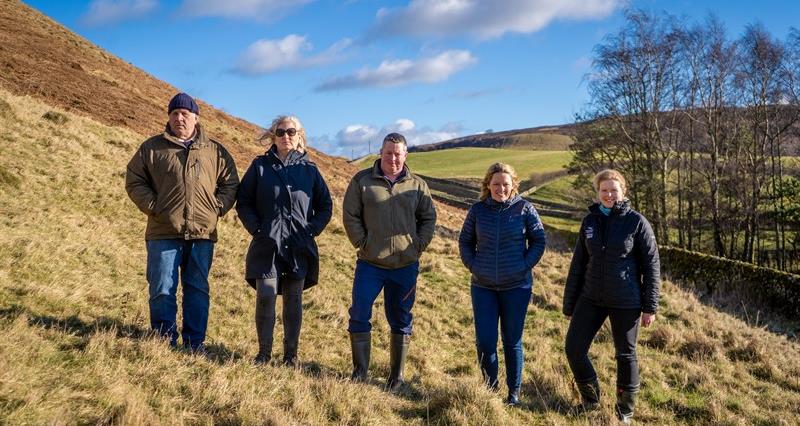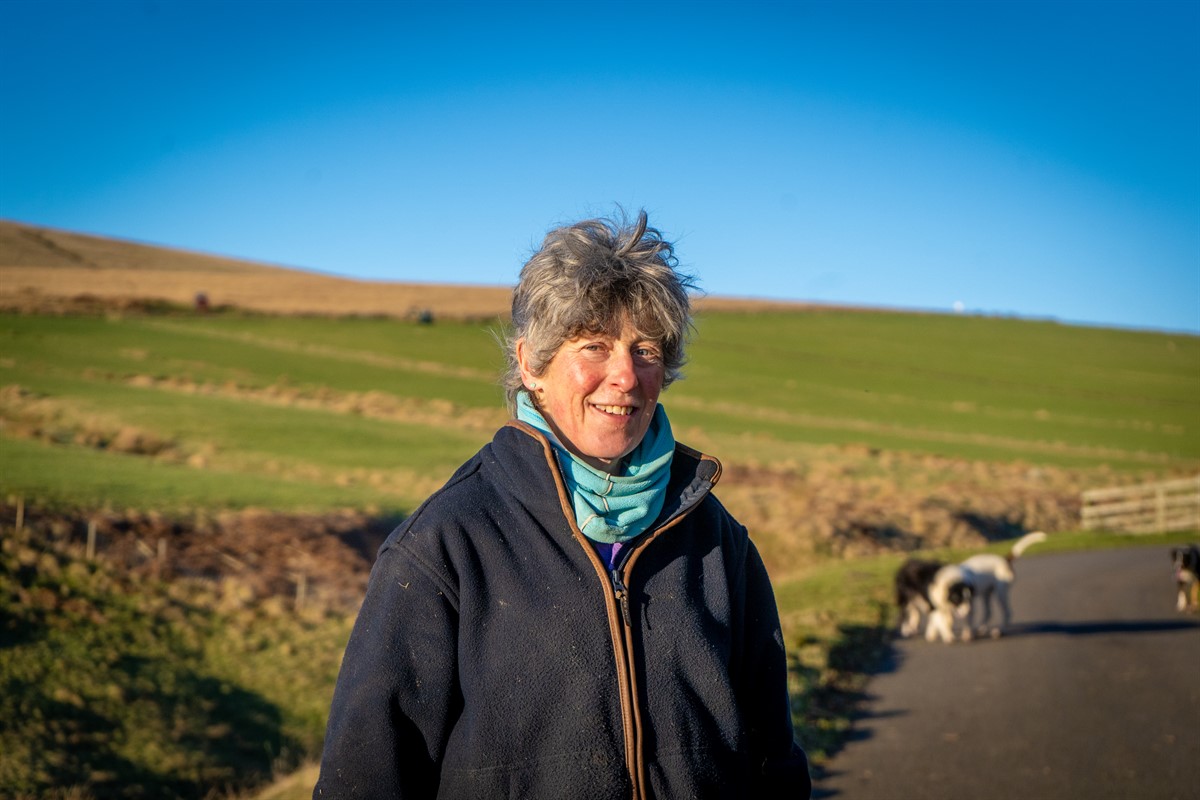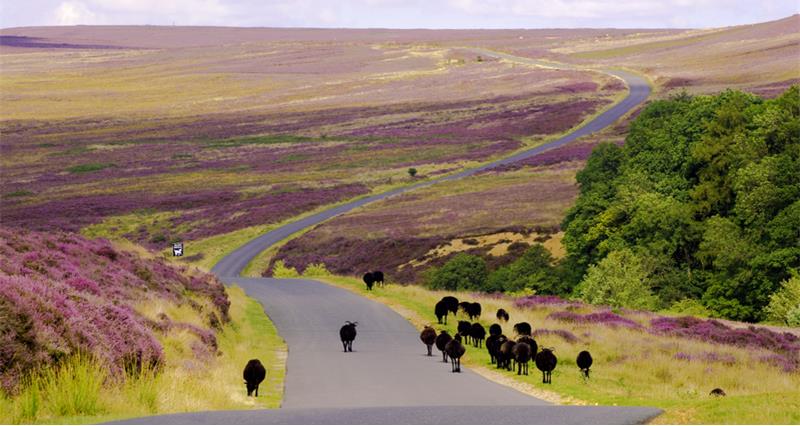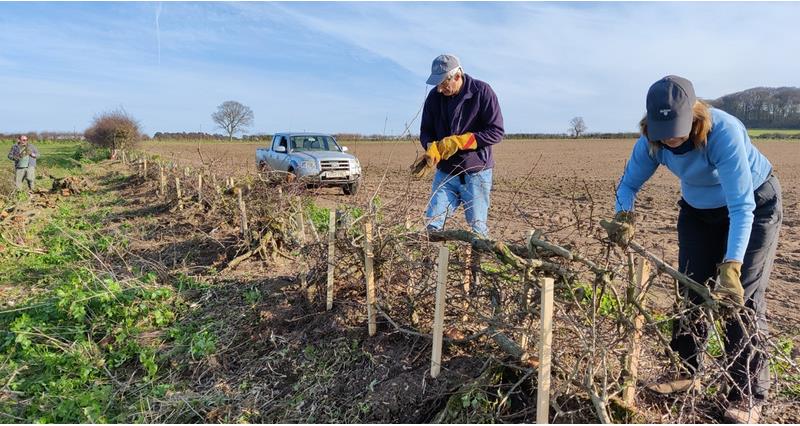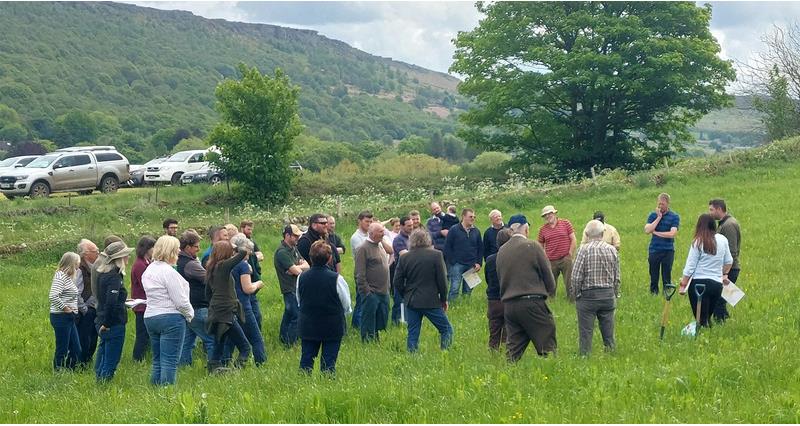Beating bracken to boost biodiversity
Northumberland’s Upper Coquet is characterised by open meadows, wild moorland and the River Coquet, which flows through the land.
Bracken though is an ongoing problem that poses significant management issues for farmers – creating a monoculture that is very invasive and harmful to livestock.
Graham Dixon of Alwinton Farm, along with other neighbouring farmers, currently controls bracken on the safely accessible areas using conventional machinery, but significant areas are completely inaccessible.
Recognising the opportunity to apply for funding through FiPL for a remote-controlled mulcher to improve bracken management, he worked with neighbouring farms to pull together a successful application to the National Park team.
“Dense bracken cover presents countless challenges for us and impacts the management of the landscape,” said Graham.
"With our conventional equipment there are large areas of steep hillside that are inaccessible, making bracken difficult to control. This results in some parts of the farm being over-grazed, while other areas are under-grazed. The growth also threatens animal and human health.”
“It is a classic example of landscape scale co-operative working.”
Graham Dixon of Alwinton Farm
With the new equipment, around 220 more acres of bracken can be cut, making the countryside and Park heritage more accessible to visitors. Better bracken management also helps promote the area’s unique biodiversity.
Being able to invest in the mulcher will bring countless benefits, says Graham.
“By working as a group, with a partnership agreement, the benefits of the investment will be delivered over a far larger geographic area to achieve greater environmental and other gains. It is a classic example of landscape scale co-operative working.”
Helping the farm to adapt
Of all the applications submitted for FiPL funding, it would be hard to find anyone with a project as diverse as Anne Robson’s.
A hill farmer based in Northumberland, Anne and her husband run a hefted flock of 1,500 cheviot and blackfaced ewes, alongside 30 suckler cows over 3,500 acres.
Working with her local FiPL officer, Anne recognised the unique opportunity to create and deliver a five-pronged project that will benefit both the heritage and environment of Northumberland National Park.
"Northumberland is a notoriously difficult farming environment and this funding will go a long way to helping us adapt to the forthcoming challenges.”
Anne Robson, Northumberland farmer
Preservation of the farm’s heritage is a key focus of the project, with funding secured for dry-stone wall restoration and rebuilding. Funding has also enabled major restoration to a traditional keb house – estimated to be well over 100 years old and still in use today.
This funding will ensure that the iconic structure remains in the landscape for generations to come.
The natural environment and biodiversity are especially important to the National Park, so Anne’s project has also benefited from funding for weed-wiping bracken and the removal of Sitka regeneration (including follow-up treatment to eliminate regrowth).
Finally, funding has also been secured for the creation of two on-farm ponds.
